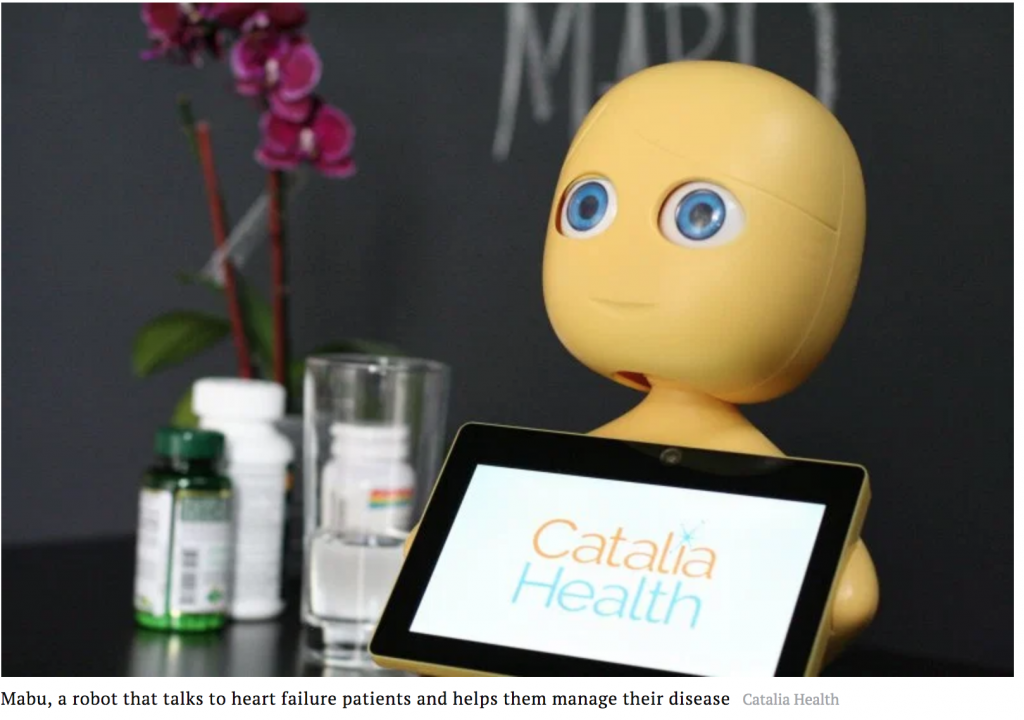Mabu the Nursebot Demonstrates Power of AI
A 68-year-old man with diabetes and who lives alone is participating in a groundbreaking program using AI as a doctor’s assistant. The patient, Ray Byrd, gets a greeting and support every morning from his health bot Mabu. Along with diabetes, Ray also has congestive heart failure and a microvalve inside his heart to helps keep his blood flowing. Doctors say they need to keep their eye on certain medical statistics to keep Ray in good health.
Mabu asks Ray how he is feeling, if he is exercising and how well he is breathing, all in a very pleasant voice. Then Mabu send the info to Ray’s doctor .
“Mabu keeps me on my toes about remembering to take my medicine,” says Byrd. “And she asks if I’ve had any shortness of breath and other questions pertaining to my health. She keeps me aware of my breathing.”
Time.com’s report on Mabu and Ray shows the latest examples of what machine learning AI can accomplish in medicine. The questions “she” asks are derived from a recipe that combines best practices that doctors use to monitor heart-failure patients like Byrd, with data from how physicians interact with patients. The questions they ask and their response isolate and manage not just medical symptoms, but psychological barriers like anxiety and depression that often make dealing with chronic diseases difficult.
Mabu also comes with the ability to make jokes with the patient. Ray, however, didn’t really respond to the jokes, so Mabu learned not to offer them. Mabu explores how Ray is doing with regular daily routine activities. If Ray says he has shortness of breath, then Mabu will ask further questions to assess how serious his symptoms are. Then Mabu will recommend if Ray should call his doctor for an appointment.
While the medical world is still figuring out how best to use bots, the medical world is introducing the use of AI in everything from boosting IVF success rates to predicting heart disease and improving blood-glucose tracking. This is just the beginning of AI moving into more visible roles for treating and/or assessing medical problems.
“We need to let the machine do what it does well — such as ingesting a whole lot of scientific papers and organizing them — and let the clinician make the final decision on what should be done to treat a particular patient,” says Cory Kidd, CEO and co-founder of Catalia Health, who created Mabu.
It’s already been proven that AI can read x-rays, CT scans and MRIs better than human beings can. AI models are also detecting the smallest nodules that could be the first signs of lung cancer that are often missed by the human eye of the radiologist, and they’re improving interpretation of mammograms in detecting early breast cancer.
Byrd says since he’s worked with Mabu, he hasn’t missed a single dose of his medication. He’s so attached to Mabu that he jokingly says it will be hard to give her up if he is asked to at the end of the study.
“Talking to Mabu can be kind of fun,” he says. “I feel like in a sense Mabu is looking out for me.”
The little bot Mabu is providing vital personal care and reducing the number of Ray’s doctor visits as well.
read more at time.com








Leave A Comment